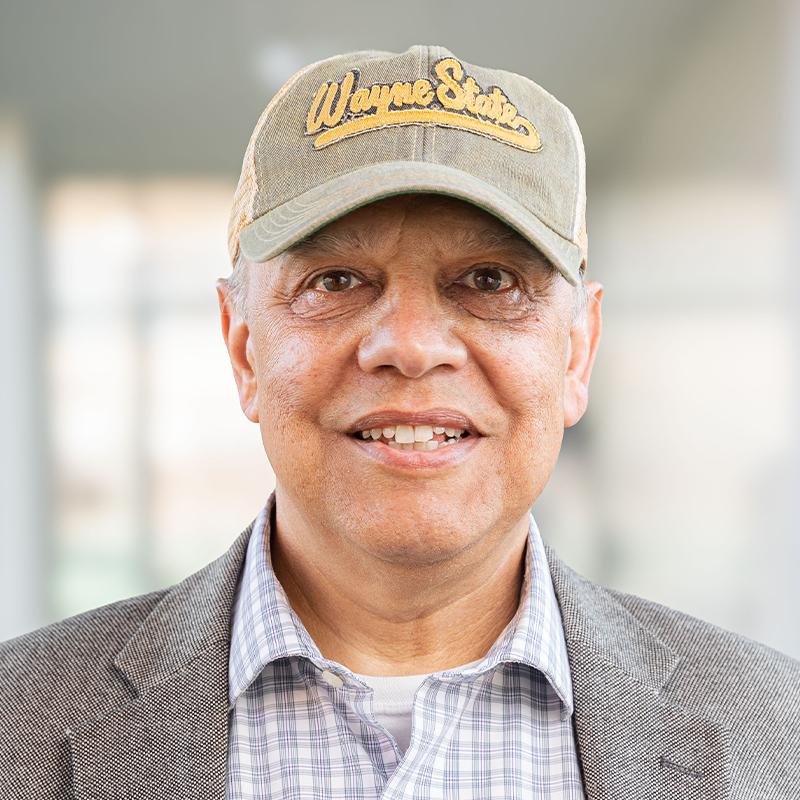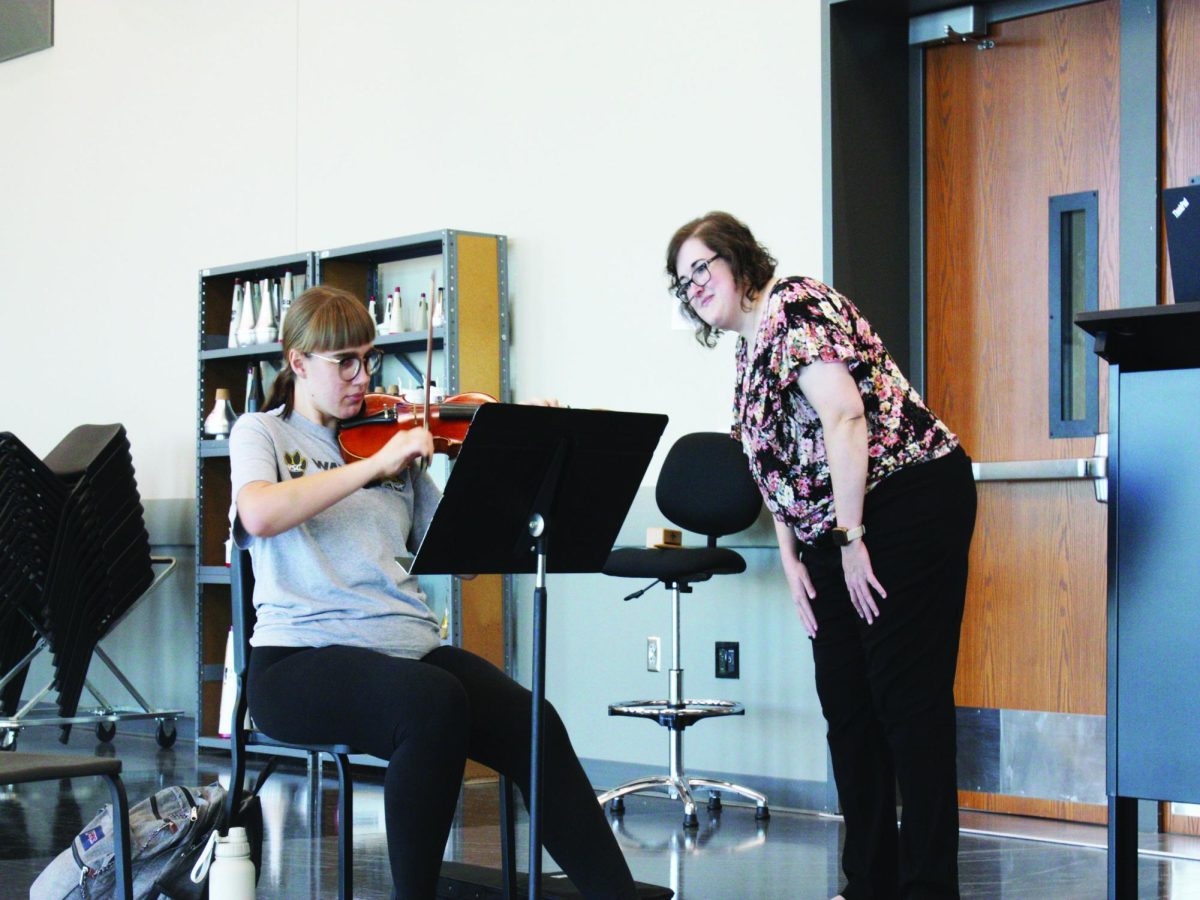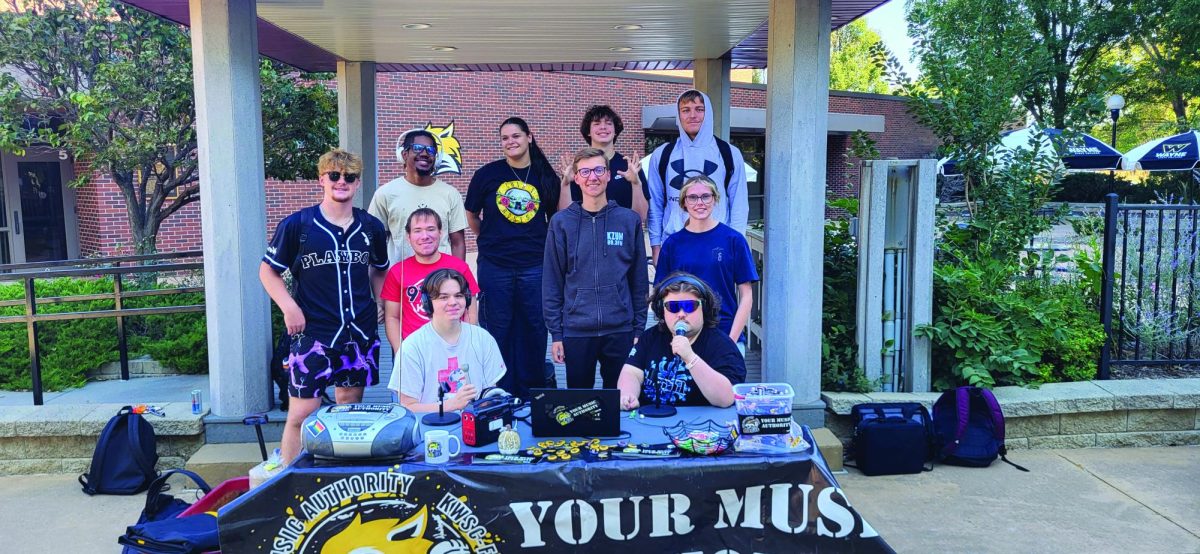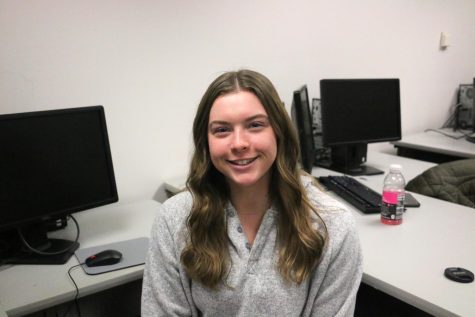Phi Alpha Theta hosts presentation on Holocaust survivor’s story
April 5, 2023
The History Honor Society, Phi Alpha Theta, brought in Steven Wees to share his mother’s story of surviving the Holocaust.
The presentation took place in the Ley Theater in Benthack Hall on Wednesday, March 29. Wees is a part of a speaker bureau in Omaha, that gives presentations about the Holocaust and Holocaust survivors.
President of Phi Alpha Theta, Sara Lundeen, initiated bringing in Wees to give a presentation. Lundeen noted how important it is to continue to learn about the history of the Holocaust.
“This is a horrible lesson you know you wish humanity never had to learn, but it’s even worse that it seems like we haven’t, so hearing this, seeing it, being present, having empathy is huge and just being educated is instrumental in preventing atrocities like this from occurring again,” Lundeen said.
He began by providing some background on his mother, Elizabeth Bodek Wees’s, early life, noting that she was born in 1924 and grew up in Svalava, Czechoslovakia, a small town on the very eastern side of the country.
In 1944, at the age of 14, Wees’s life was changed forever when her family was forced from their home. Her father’s business was taken away from them, then they were taken away from their home, all because they were Jewish. They were packed into cattle cars and transported to the Munkacs Open Ghetto before being taken to Auschwitz. Upon arrival, Wees’s mother was sent to the gas chamber, while Elizabeth and her sister Olga were taken to slave labor.
Despite the unimaginable conditions and constant threat of death, his mother and her sister managed to survive for a year. Josef Mengele was a German officer and physician who was known for performing deadly experiments on prisoners in Auschwitz. Her sister was chosen to be experimented on. The experiment involved surgery on her breast. She survived the experiment.
After a year at Auschwitz, the sisters were sent on a death march near the end of the war. In 1945, they we liberated by Allied forces.
Following her liberation, Wees made her way to America, arriving on June 24, 1946. She settled in the United States and eventually married and started a family.
John Vuchetich, the Vice President of Phi Alpha Theta said that we don’t often hear stories about survivors’ lives after liberation.
“That is the part of the narrative that we don’t often hear, the real impacts on people who survived and then their impacts on the rest of the community,” Vuchetich said.








